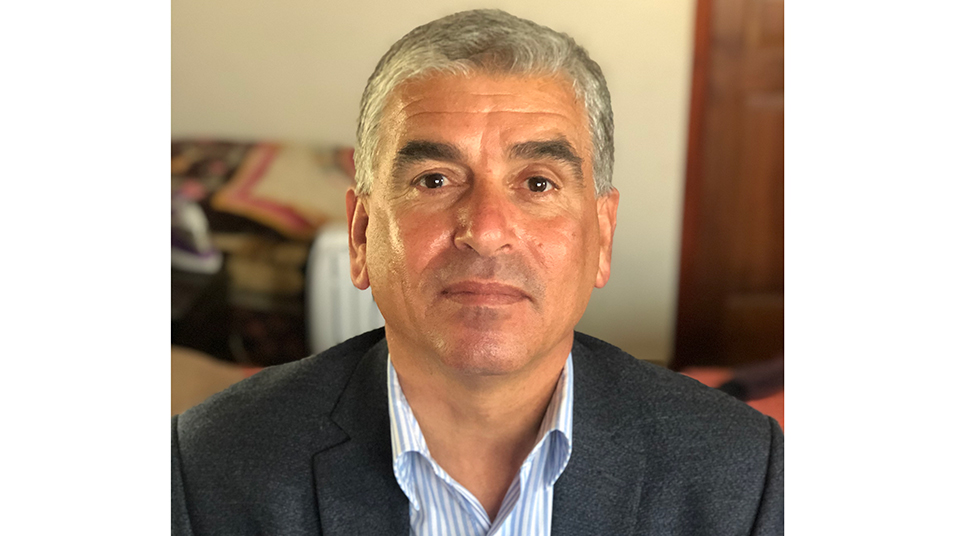Freedom of the press in the digital age: a conversation with author and media lecturer Saleh Masharqeh
Every May 3 since 1993, journalists, media professionals, individuals, and institutions around the world celebrate the World Press Freedom Day to emphasize the importance of a free, independent press in modern communities.
Each annual day revolves around a certain theme related to journalism and the press, with “Information as a Public Good” serving as the theme for the 2021 World Press Freedom Day, underscoring the ever-increasing significance of reliable, verifiable information in today’s atmosphere that’s beset by “fake news” and deepfake videos.
With the rise of social media, citizen journalism, and online-based reporting, access to information and the reliability of such information are two interrelated areas that are being defined and redefined constantly, especially in the Arab world, where young, social-media-savvy populations often use these platforms to shine a spotlight on oblique political and governmental processes.
Such transformations in information and access thereof have been at the heart of research carried out by Birzeit University’s Media Development Center, which has focused on fostering academic and public debate on topics such as media ethics and freedom of the press.
In honor of the World Press Freedom Day, we’ve interviewed Saleh Masharqeh, the research and studies coordinator at the Media Development Center and a lecturer in media at Birzeit University, on the role of information and the importance of access to information in the digital age.
Q: With the advent of what is termed as the “new media” and the domination of digital and interactive forms of media, do you think that freedom of the press as a concept has to be redefined?
I believe that we’re entering — or we have, actually, entered — a new phase or a new era of digital media that requires us as media professors, experts, and practitioners to redefine many essential concepts in media. Digital media, as we have seen so far, presents us with a vast and open space that exists beyond the control of the state or the society and, as some argue, beyond the law itself, even.
While it can be influenced by users, journalists, and even corporations, digital media is more independent, more free, than traditional media, which has significantly bolstered freedom of thought and speech globally and locally. While digital media and its producers and consumers have been charting new paths and probing new topics and areas, traditional media outlets, especially in the Arab world, have failed to grasp the roots of this digital change: the fact that underlying this digital change is a fundamental transformation in the perception of audience members regarding media and digitization.
Q: You’ve mentioned the rise of social media, which brings me to my next point: there have been quite a few news leaks distributed over social media, and digital media in general, in the past few years. With these past events in mind, do you think that along with calling for access to information, we should also be calling for the protection of information and/or information sources?
Digitization has certainly led us to what Byung-Chul Han terms “the transparent society.” The amount of information available about each and every one of us, especially on social media, is both staggering and frightening. We were led to believe, as societies, that such openness and sharing would lead to more open, more equal, and more equitable ways of living and communicating.
While that might be the case in some Western societies, in our Arab communities, this openness hasn’t been achieved in some of the most important aspects of our modern lives: government and governance. On the contrary, everyday people are sharing more and more details about their lives and social media activists are sharing more of their sources while the government and the process of governance are enveloped in utmost secrecy.
Q: Circling back to social media and citizen journalism, there have also been a few cases where reporting generated on digital platforms has been purposefully designed to misrepresent facts or to shift general perceptions in a certain direction or another using, of course, publicly available information. Do you think such cases hamper the quest for freedom of information?
Instead of functioning as an open space where people are free to present information and gauge its accuracy, citizen media has turned into a space rife with misinformation and disinformation. This, however, doesn’t change the fact that access to information is essential for the functioning of an independent press in society. Once we establish a free and fair method of accessing information, then we can start discussing the accuracy of citizen media.
Q: A famous proverb states that liberty can’t be divided, with the implication that the negative consequences of ultimate or complete freedom can never outweigh its benefits. How do you think this relates to the question of freedom of the press and freedom of information?
I think that what we’ve seen so far is freedom in the “post-truth” age; that is, freedom and personal liberty above all, which has led to a disorganized digital media landscape that favors emotions over facts even in news reporting. In our digital age, and especially with regards to digital and citizen media, freedom of the press has been receding in importance in favor of sensationalized, click-bait-based reporting whose function is to generate views and revenue, and this is something that can’t be regulated at an official level.
It is a sad state of affairs, but I think that introducing lessons and modules in primary, secondary, and tertiary education that focus on the importance of a free, unbiased, independent press can help address this imbalance that we’ve seen developing over the past few years.







